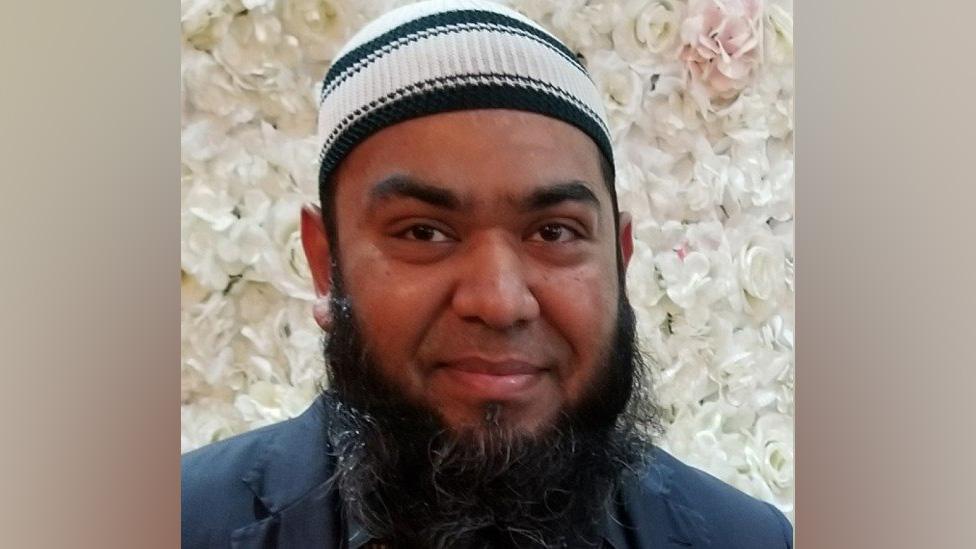'Missed opportunities' before man died on M1
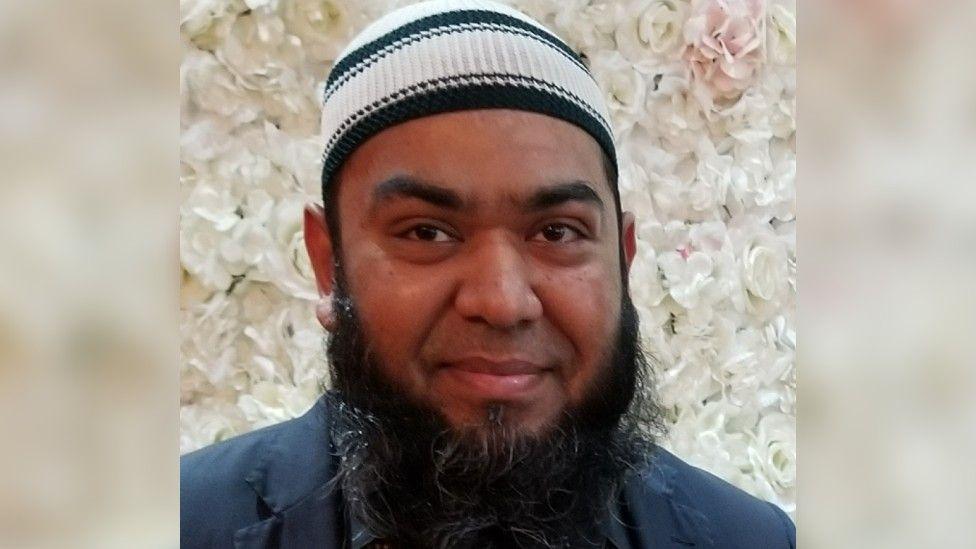
Shafiqul Haidhar's family said he was a "dedicated" family man who gave generously to charity
- Published
A coroner said there were missed opportunities to treat a father of four before he was seen to walk into traffic on the M1.
Shafiqul Haidhar was fatally struck by a lorry after he had been awaiting recovery on the hard shoulder of the motorway, near Lutterworth in Leicestershire, on 23 August 2023.
His brother had called police several times asking for Mr Haidhar - who had a history of mental health issues - to be taken to a safe place, but no police resources were deployed.
On Wednesday, following an inquest at Leicester Coroner's Court, area coroner Ivan Cartwright said he could not determine on the balance of probability that Mr Haidhar intended to cause his own death.
Mr Cartwright said police call handlers had missed opportunities to gather more information about Kaisor Ahmed's concerns on the day his brother Mr Haidhur died, and added a mental health trust had not identified the urgency to treat him earlier in the year.
Mr Ahmed told the BBC his family had waited three years for answers.
Mr Haidhar had travelled from his home in Barking, east London, into Leicestershire in the early hours.
Shortly after 06:00 BST, he crashed his car into the central reservation - which was later found to have been caused deliberately.
The 39-year-old was towed to the hard shoulder by National Highways officers, who spoke to Mr Haidhar's brother on the phone while they were at the scene.
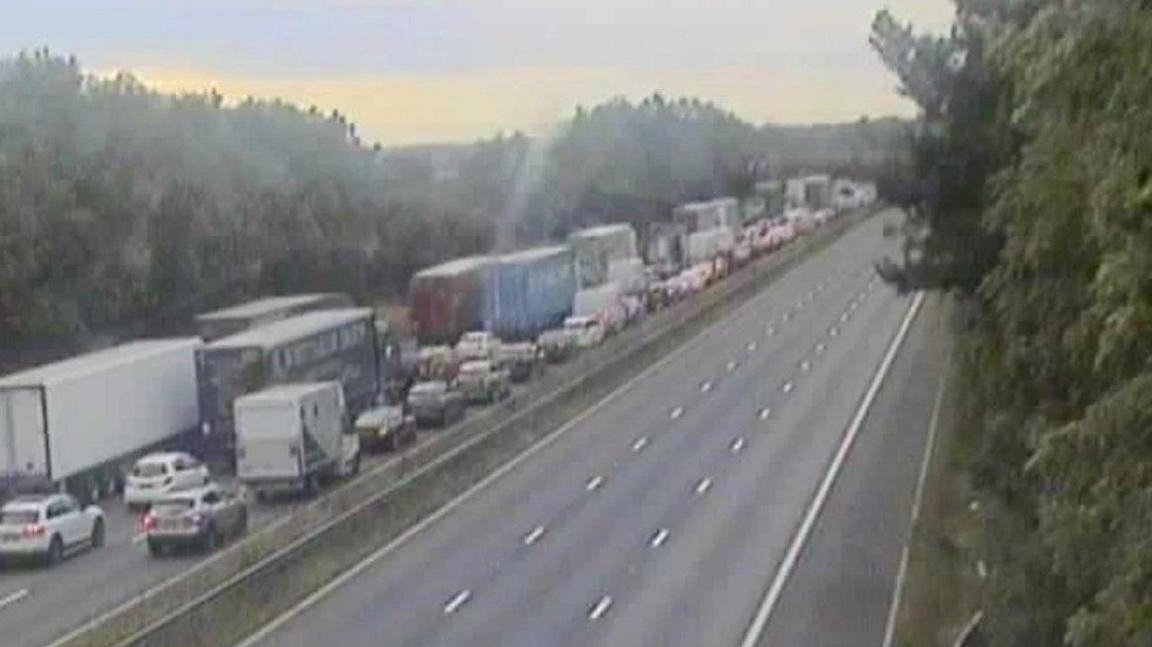
The M1 northbound was closed following Mr Haidhar's death
The inquest heard Mr Ahmed pleaded with them to take his brother to a safe place.
However, a highways officer said in his evidence he could not hear this due to the sound of the motorway, and the phone was passed back to Mr Haidhar.
Concerned for his brother's welfare, Mr Ahmed called 999 at 06:24, and he was connected to the Metropolitan Police.
The inquest heard how Mr Ahmed was given a non-emergency number for Leicestershire Police via text.
During a call to a Leicestershire Police call handler at 07:12, Mr Ahmed's concern for his brother's safety and vulnerability were not questioned further, the inquest was told.
By the time of Mr Ahmed's final call to Leicestershire Police at 07:40, his brother had died.
The coroner said an "opportunity was missed" to gather more information about Mr Ahmed's concerns "at a time when it could have made a difference", calling the actions of two call handlers "failings".
The Independent Office for Police Conduct (IOPC) also carried out an investigation into the way Mr Ahmed's calls to police were handled.
A spokesperson for the watchdog said it found the Leicestershire Police call handler "failed to carry out their duties and responsibilities to the standard expected, by not checking relevant police logs, not probing concerns raised and failing to create an incident".
It also recommended a "reflective practice review process (RPRP)" - a non-disciplinary procedure for police officers - for two Met Police call handlers so they had a clearer understanding for handling calls relating to matters outside the force area.
Mental health history
The inquest heard Mr Haidhar had deliberately crashed his car in the Rotherhithe tunnel in east London in December 2019.
He was subsequently sectioned under the Mental Health Act, and diagnosed with drug-induced psychosis and an anxious personality disorder.
Mr Haidhar was also prescribed olanzapine, an antipsychotic medication, of which the dose gradually reduced over time as Mr Haidhar's condition improved.
However, in June 2023, Mr Haidhar visited his GP complaining of a recurrence of psychotic symptoms and requested to be prescribed olanzapine.
A referral was made to the North East London NHS Foundation Trust (NELFT) and an appointment was set for a later date.
The inquest heard the appointment was "mistakenly" marked as routine and the coroner said "urgency was not adequately identified".
NELFT concluded there had been missed opportunities to intervene, the inquest heard.
On the day of his death, Mr Haidhar presented as being "friendly and lucid" to highways officers following the initial crash.
It was not until a few moments before his death that Mr Haidhar's behaviour changed, the court heard.
The coroner ruled although Mr Haidhar died as a result of a deliberate act, he could not determine his intentions.
'Dedicated family man'
Mr Ahmed said he had been "distraught" by his brother's death and believed he had been "failed".
"Nobody went to [my brother]. I called and I begged someone to go to my brother and nobody did," he told the BBC.
"My brother would still be here. He should still be here."
Mr Ahmed said his brother had also been "disappointed" by the response he received when he sought help for mental health issues.
Matthew Turner, a lawyer representing Mr Haidhar's family, said Mr Ahmed "never stopped trying to get help for his brother that morning".
"It was a catastrophic series of failures by the institutions that should have helped," he added.
In a statement, Mr Haidhar's family said he was a "dedicated and happy family man" whose wife was expecting their fifth child at the time of his death.
A spokesperson for Leicestershire Police said: "We co-operated fully with the IOPC's independent investigation, which led to a misconduct meeting. The call taker received a written warning and additional training.
"The role of a contact handler is an extremely complex job requiring quick-time decision-making in often stressful situations.
"Our deepest sympathies remain with Mr Haidhar's family."
A spokesperson for the Met Police added: "The IOPC recommended reflective practice for two call handlers to help them better understand the process for assisting people with matters happening outside the Met area. This has taken place."
National Highways regional director for the Midlands, Victoria Lazenby, said: "Any death on our roads is one too many and this was a terrible tragedy.
"Our deepest sympathies remain with the family and friends of Mr Haidhar."
NELFT has been contacted for comment.
If you are affected by any of the issues raised in this story, support and advice is available via the BBC Action Line
Get in touch
Tell us which stories we should cover in Leicester
Follow BBC Leicester on Facebook, external, on X, external, or on Instagram, external. Send your story ideas to eastmidsnews@bbc.co.uk, external or via WhatsApp, external on 0808 100 2210.
Related topics
- Published12 November
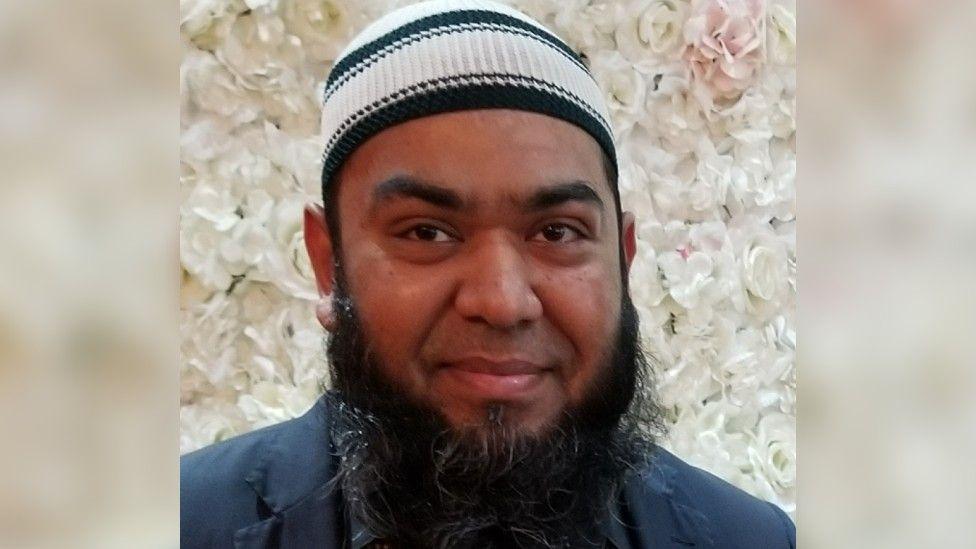
- Published11 November
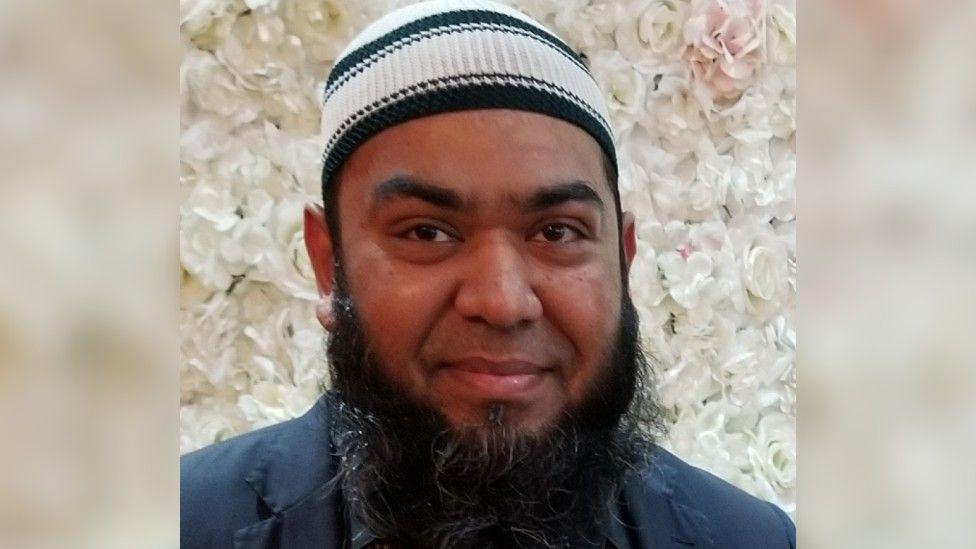
- Published6 April 2024
